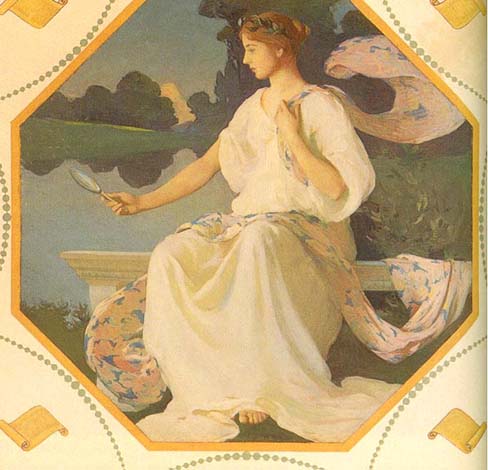
Euphrosyne [yoo-fros-uh-nee] ExamplesWord Origin noun Classical Mythology.
- one of the Graces.
Origin of Euphrosyne Greek, personification of euphrosýnē mirth, merriment Examples from the Web for euphrosyne Historical Examples of euphrosyne
“If so, command me, madam,” Euphrosyne exerted herself to say.
Harriet Martineau
Before she could make a sign, Euphrosyne had rushed from the room.
Harriet Martineau
“And I do not understand what it is all about,” said Euphrosyne, as she returned to her grandfather.
Harriet Martineau
“That would not have been the answer if—” whispered Euphrosyne to her friend.
Harriet Martineau
He would sail with Hédouville; and so should Euphrosyne, and so should Pierre.
Harriet Martineau
British Dictionary definitions for euphrosyne Euphrosyne noun
- Greek myth one of the three Graces
Word Origin for Euphrosyne from Greek: mirth, merriment Word Origin and History for euphrosyne Euphrosyne
name of one of the three Graces in Greek mythology, from Latin, from Greek Euphrosyne, literally “mirth, merriment,” from euphron “cheerful, merry, of a good mind,” from eu “well” (see eu-) + phren (genitive phrenos) “mind,” of unknown origin.
 Liberal Dictionary English Dictionary
Liberal Dictionary English Dictionary